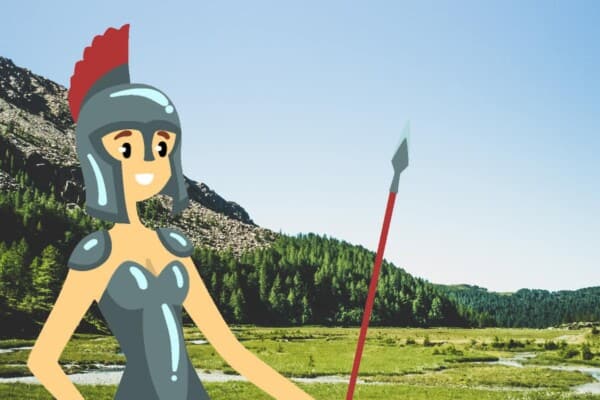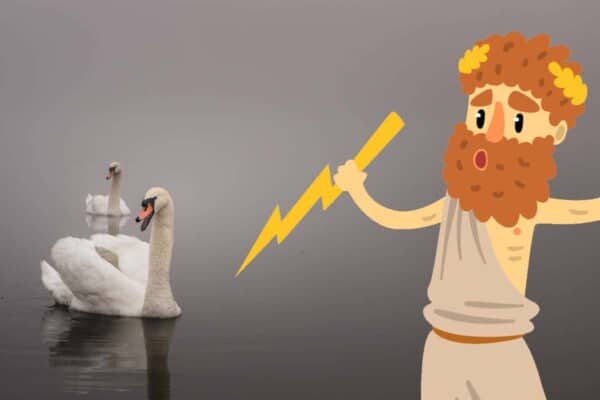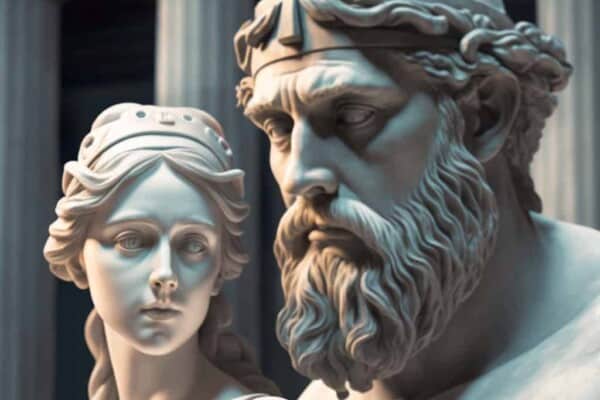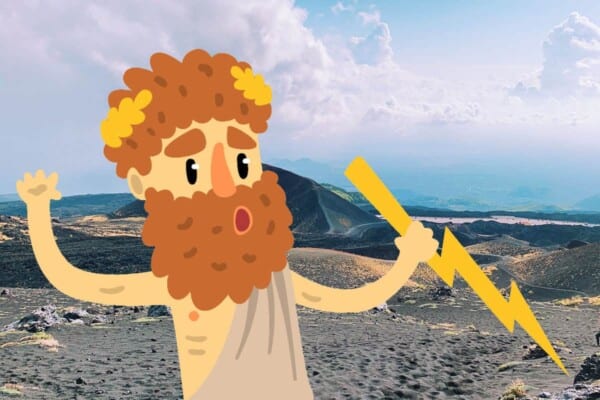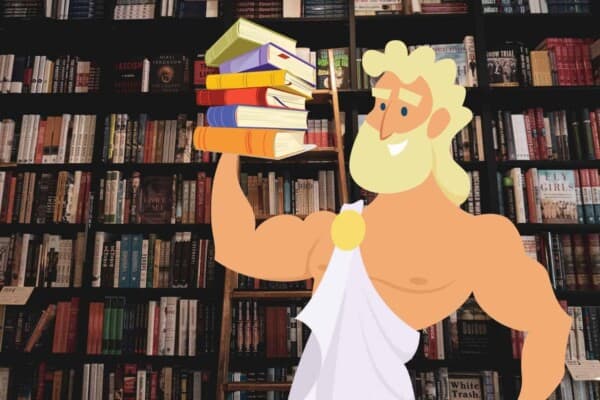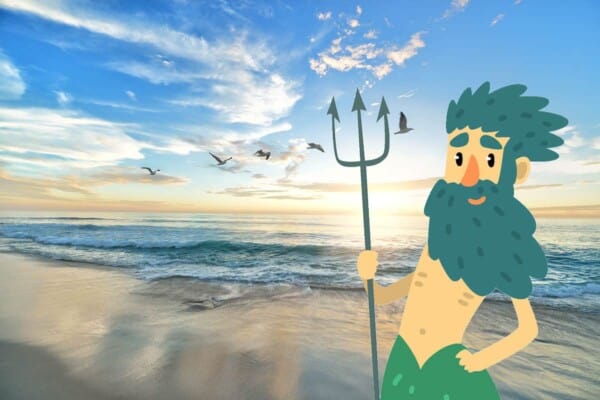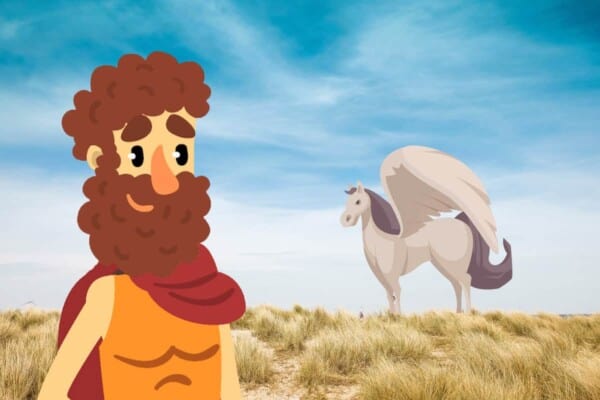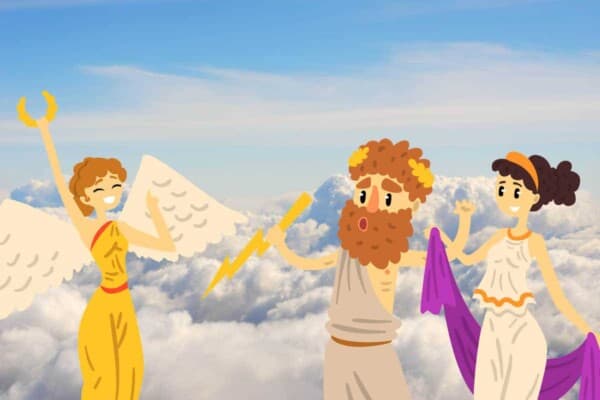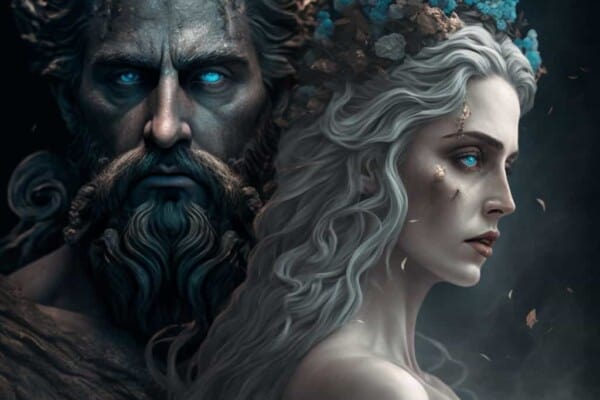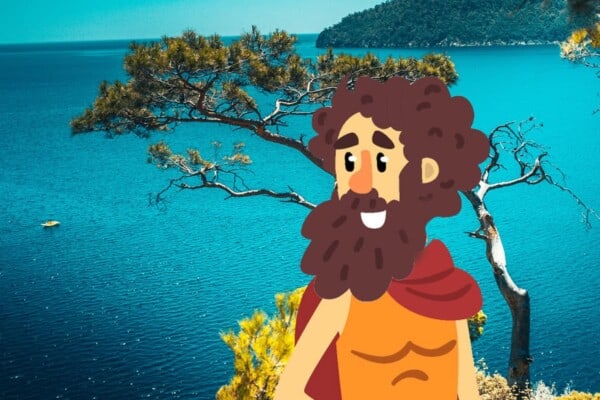Greek mythology is filled with stories of gods and giants, winged horses and sea monsters, and every fantastic creature that a person can imagine. It’s not all about the divine, though! Many mortals played essential parts in the stories, whether as friend or foe, lover or child, hero or villain. In fact, without the machinations of mortals, the complexities of the Olympians would never have gotten quite so impressive!
The following list covers just some of the most essential mortals to the Ancient Greek religion. It explains some of what made them special.
Famous and Important Mortals in Greek Mythology
1. Pandora
Pandora was the first human woman, created as a gift and a curse to mankind. She was molded from clay by Hephaestus under the instructions of Zeus as part of an elaborate plot to get revenge on Prometheus.
She bears a name that means ‘all-gifts,’ which was created as an ideal. She had Athena’s wisdom, Aphrodite’s beauty, Artemis’s grace, and gifts from all other gods. Pandora’s coming ended the all-male age of humanity. Zeus gifted her to Prometheus’s brother, Epimetheus, as a wife. He also gave her a jar (later translated as ‘box’) as a wedding gift and warned her not to open it.
Pandora’s human curiosity got the better of her, and she eventually gave into temptation and opened the box. All of the evil in the world spilled out of it – greed, envy, hatred, pain, disease, and more – and a terrified Pandora slammed the lid down to stop it. It was too late to return the evils to the box, but there was one thing left inside – hope.
She was able to hold on to that hope, and this has been passed through the generations. This is what stops all of mankind from falling into evil.
2. Orpheus
Orpheus was a poet, musician, and bard who was legendary throughout Greece for his skill. He was the founder of the religious Orphic Mysteries. He served as an Argonaut along with Jason, saving them from the Sirens. He is alternately the son of Muse or human women. His father is sometimes Apollo and sometimes a human king.
The most famous story regarding Orpheus was his attempt to retrieve his wife from the Underworld. Eurydice was a beautiful woman who died on their wedding day due to an attack from snakes in the grass (or, in some versions, while dancing with naiads). Orpheus traveled to the Underworld and presented himself to Hades and Persephone to plead his case and bring her back.
Hades, impressed by Orpheus’s skill, agreed to let him take Eurydice out of the Underworld if she followed him to the surface without him looking back at her. Orpheus agreed, thinking himself patient. However, near the mouth of the Underworld, Eurydice’s silence made him suspect a trick, and he turned. Since he’d broken the deal, she was taken from him once more, and this time he couldn’t return below.
Orpheus died soon after while playing a mourning tune, but the Muses kept his head to sing forever.
3. Semele
Semele was the daughter of the hero Cadmus and the goddess Harmonia, though she herself was a mortal. She was the mother of the later Olympian Dionysus by Zeus.
Semele served as a priestess of Zeus, and he was so taken with her beauty that he began repeatedly visiting her in the form of an eagle. She became enchanted with him and lay with him, and eventually, she became pregnant.
Hera discovered the affair and visited Semele in the guise of a human. Using her wiles and a false friendship, Hera tricked Semele into forcing Zeus to show his full divine form. Though Zeus tried to get out of it, he eventually had to do so. He wanted to spare her, but his majesty consumed her, and she died.
Zeus saved the baby, sewed the fetus into his own thigh, and birthed him a few months later. After Dionysus grew up, he went to the Underworld to retrieve his mother. Dionysus brought Semele to Olympus. She became a minor goddess, Thyone, and she served as a goddess of wine-induced frenzy for her son.
4. Sisyphus
Sisyphus was the king of Ephyra, now Corinth, and the husband of the Pleiad nymph Merope. He was a clever but deceitful man who angered Zeus by repeatedly breaking guest rights and murdering those visiting his home. He was also at constant war with his own brother and sought ways to kill him without hurting himself. In one plot, Sisyphus seduced his own niece to produce children that would steal his brother’s throne. The children were killed by their uncle/grandfather.
When Sisyphus died, he persuaded his wife not to give him a proper burial. After he reached the Underworld, he complained to Persephone that his wife hadn’t respected him and was allowed to return to the surface. He refused to return when the mistake was discovered. At the behest of Zeus and Hades, Hermes eventually dragged Sisyphus back to the Underworld to face his punishment.
Hades punished Sisyphus for trying to cheat death by assigning him to roll an immense boulder up a hill. The boulder was enchanted to roll away every time it nearly reached the top of the mountain, meaning that clever Sisyphus was condemned to an eternity of fruitless efforts and frustration.
5. Helen of Troy
Helen was one of four children born at once from Leda, who had been impregnated by Zeus while he was in the form of a swan. Helen’s brother Pollux was also Zeus’s son. The two other quadruplets, Castor and Clymenstra, were actually the children of Leda’s mortal husband, Tyndareus. Helen and Pollux were born from an egg.
Helen was the most beautiful woman in the world. She was briefly kidnapped by Theseus as a wife until Castor and Pollux saved her. Her brothers also dealt with her many suitors, and her step-father Tyndareus chose Menelaus to be her husband. Helen and Menelaus were happy for ten years and had a daughter, Hermione.
The prince of Troy, Paris, fell in love with Helen at first sight. Depending on the source, he either kidnapped and raped or seduced and lured her away. Other sources say she fell in love with him. Paris took Helen to Troy. When Menelaus discovered that Helen was missing, he and his men attacked Troy, leading to the infamous Trojan War.
After Paris was killed, she was given to his brother. However, after Troy’s fall, Helen returned home to Menelaus, and the two of them lived happily. Helen often spoke of her life in besieged Troy, while Menelaus held no grudge for her relationship with Paris.
6. Icarus
Icarus was the son of Daedalus, the famous inventor who created the Labyrinth to contain the fearsome Minotaur. After Daedalus helped Ariadne lead Theseus through the maze, Minos punished him by confining father and son to a tower in the middle of the Labyrinth.
In an attempt to escape, Daedalus fashioned two sets of wings from feathers and wax. He wore one set and gave the other to Icarus, warning the boy not to fly too high or too low, as the sun would melt the wax and the salt spray would dampen and ruin the feathers.
The escape went well at first, but Icarus, in his youthful hubris, became careless. He flew upwards and eventually got so close to the sun that the wax holding his wings together melted. Icarus plummeted to the sea and drowned before Daedalus could save him.
In his grief, Daedalus named the nearby land Icaria – an area which is still called such today. The sea where Icarus fell is called the Icarian Sea.
7. Cassandra
Cassandra was a Trojan princess who became beloved by the sun god Apollo. Apollo was also a god of prophecy, and when Cassandra expressed interest in the subject, he offered to grant her the same power. She agreed to marry him, but when she changed her mind, Apollo cursed her. For the rest of her life, she had accurate prophecies but was never believed and was accused of madness.
Cassandra foresaw what would happen if Paris brought home Helen of Troy, but her warnings were ignored. During the Trojan War, Cassandra did her duty to her people and tried to remain faithful to the gods. She also fought when she had to, including attacking the Trojan Horse with an axe when nobody would believe her about the hidden assassins.
She sheltered in a temple of Athena during Troy’s fall, where she was brutally assaulted by Ajax. Odysseus and Athena both called out for punishment by death. The Greeks would not punish him, so Athena destroyed the fleet and brutally killed Ajax.
Cassandra was then taken as a concubine of Agamemnon. After she died, she was rewarded for her goodness and piety to the gods by going to the Elysian Fields to spend her afterlife with the heroes and the best of mortals.
Final Thoughts
The Greek gods and demigods get most of the attention when people look to Greek mythology. And while the gods are fascinating, the mortals that appear in some of the myths are also worth your time exploring.
This list of 7 is just scratching the surface. So be sure to dive in further if you find time! Thanks.


